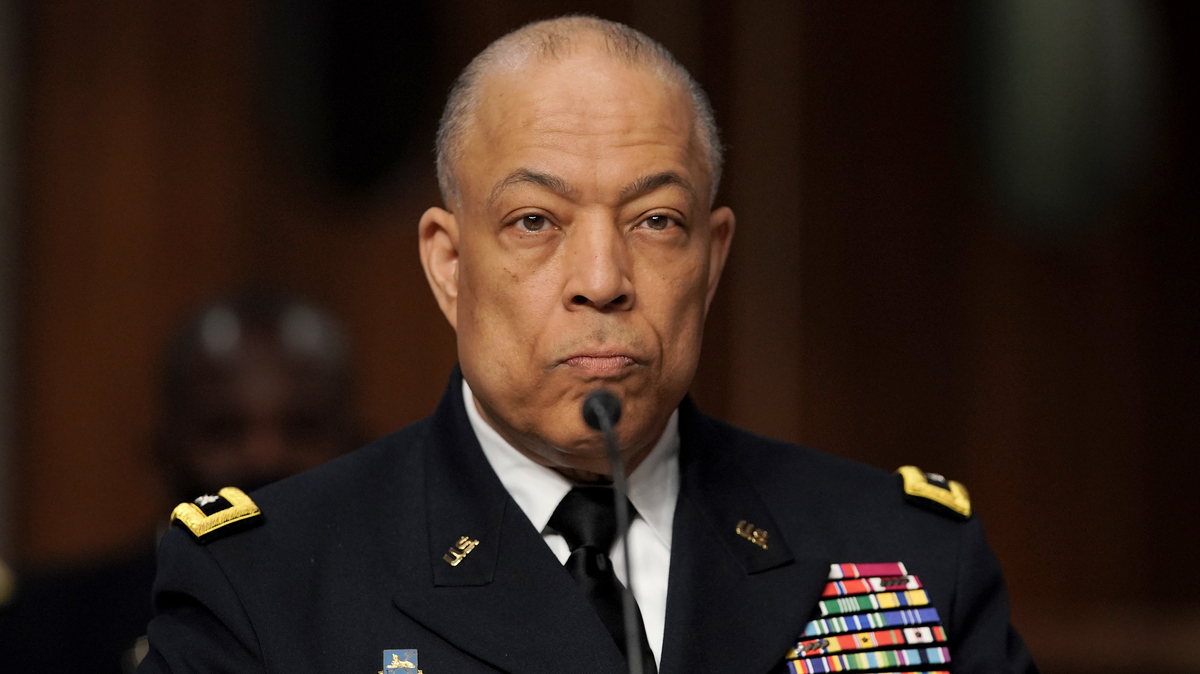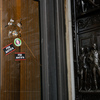D.C. National Guard Commander Recalls 3-Hour Delay In Approval On Jan. 6 : NPR

Maj. Gen. William Walker, commanding general of the D.C. National Guard, is seen during a joint hearing to discuss the Jan. 6 attack on the U.S. Capitol.
Pool/Getty Images
hide caption
toggle caption
Pool/Getty Images

Maj. Gen. William Walker, commanding general of the D.C. National Guard, is seen during a joint hearing to discuss the Jan. 6 attack on the U.S. Capitol.
Pool/Getty Images
Updated at 3:01 p.m. ET
It took more than three hours for former President Donald Trump’s Defense Department to approve a request for the D.C. National Guard to intervene in the deadly Jan. 6 Capitol insurrection, the commanding general of the outfit told senators on Wednesday.
Maj. Gen. William Walker testified he had National Guard troops at the ready and sitting idly for hours before he was finally given authorization to send them into the field. Walker said that the delay was caused at least in part over concerns of the optics of sending uniformed troops to the scene.
His testimony to the Senate Homeland Security and Rules committees comes as Congress holds a series of hearings about security preparations for and the response to the violence at the Capitol this year.
The timeline
“At 1:49 p.m., I received a frantic call from then-chief of U.S. Capitol Police, Steven Sund, where he informed me that the security perimeter at the Capitol had been breached by hostile rioters,” Walker testified.
“Chief Sund, his voice cracking with emotion, indicated that there was a dire emergency on Capitol Hill and requested the immediate assistance of as many guardsmen as I could muster.”
Walker said he “immediately” alerted Army senior leadership of the request. He was not informed of the required approval from then-acting Defense Secretary Christopher Miller until 5:08 p.m., he said — “3 hours and 19 minutes later.”
“We already had guardsmen on buses ready to move to the Capitol. Consequently, at 5:20 p.m. (in under 20 minutes), the District of Columbia National Guard arrived at the Capitol. We helped to reestablish the security perimeter at the east side of the Capitol to facilitate the resumption of the joint session of Congress,” he said.
Walker said he had taken it upon himself to move the guardsmen closer to the Capitol in anticipation of the approval to mobilize. He said about 155 guardsmen were ready hours earlier, and he said their assistance “could have made a difference” in pushing back the crowd.
The Army major general testified that the day before the insurrection, he received a letter with the “unusual” restriction from deploying any Quick Reaction Force service members, unless granted explicit approval by then-Secretary of the Army Ryan McCarthy.
“I found that requirement to be unusual, as was the requirement to seek approval to move guardsmen supporting the Metropolitan Police Department to move from one traffic control point to another,” Walker said.
“They didn’t like the optics”
Walker said that Lt. Gen. Walter Piatt and Lt. Gen. Charles Flynn were concerned about optics of sending the National Guard to the scene of the uprising. He told the senators that there were concerns that the presence of uniformed troops might “inflame” the protesters.
He said Piatt and Flynn relayed to him: “It wouldn’t be their best military advice to send uniformed guardsmen to the Capitol because they didn’t like the optics. And they had also said that it could ‘inflame’ [the protesters].”
Robert Salesses, a Defense Department official who also testified on Wednesday, said that “events in the spring” contributed to concerns about National Guard presence. Sen. Josh Hawley, R-Mo., later clarified that Salesses was referring to civil unrest over the spring and summer of 2020, which was a response to police violence against Black Americans.
In June 2020, the National Guard came under particular scrutiny for its handling of peaceful protesters as then-President Trump walked to a nearby church that had been damaged during earlier protests, some of which were violent.
The role of intelligence, or lack thereof
Wednesday’s testimony incident highlighted a number of apparent failures within law enforcements’ operations and intelligence gathering and sharing, leading to bipartisan dismay at how the large mob had been allowed to breach the Capitol complex.
The attack on the Capitol had been planned for weeks, including on…
Read More: D.C. National Guard Commander Recalls 3-Hour Delay In Approval On Jan. 6 : NPR



